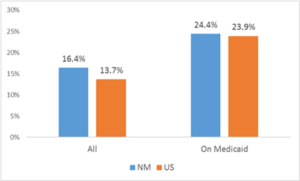The ‘Why’ Factor
Watch this session online: https://www.youtube.com/playlist?list=PL7ZcdN84H0DhBlxfXWE3U7sOzWwGF-fxS
Presenter: Chad Morris, PhD., Professor Psychiatry and Director, Behavioral Health and Wellness Program, University of Colorado, Anschutz School of Medicine
Tobacco or nicotine treatment is critical to the recovery of persons with mental illnesses and addictions. This population is at multiplicative risk for nicotine use, has greater difficulty quitting smoking, and consequently, has a higher risk for tobacco-related death and disability. The majority of nicotine users with behavioral health conditions want to quit smoking and can quit nicotine when they have access to proven psychosocial and medication treatments. At the same time, these individuals are likely to need tailored supports and services. Dr. Morris will outline the challenges these nicotine users face, as well as evidence-based responses interdisciplinary providers and agencies can consider.
Objectives:
- Describe the unique challenges and opportunities which persons with behavioral health conditions present.
- Detail how tobacco/nicotine policies treatments is key to overall recovery and health goals.
- Review evidence-based resources and tools that assist behavioral healthcare agencies to integrate nicotine treatment into daily clinical practice.
- Learn about NM and national specific data and resources.
Stronger Together – A Systems Change Case Study
Watch this session online: https://www.youtube.com/watch?v=VGurfPmcGYs
Presenters: Esther Hoang, Cessation Specialist, Tobacco Use Prevention and Control Program (TUPAC) New Mexico Department of Health; Kara Kikuchi, Manager, Optum; Susanne Cress, Health Systems Change Specialist, Optum
Addressing nicotine addiction is a key component to recovery and can be a priority for every care provider, particularly when given the right resources. This session will discuss systems change to include nicotine substance use interventions as part of treatment planning and the resources available to support New Mexico behavioral health providers in adopting these activities. These activities include free QUIT NOW and DEJELO YA services (English and Spanish, respectively). The Tobacco Use
Prevention and Control program (TUPAC) also offers free online training specifically for behavioral health providers, “Treating Nicotine Dependence in Behavioral Health Settings”. This training describes how tobacco impacts behavioral health and how to provide a brief tobacco intervention with patients. The Health Systems Change Training; Outreach Program is a free consultation, training, and technical assistance program to systematically and routinely identify tobacco users, advise them to quit, and refer those ready to quit to appropriate treatment resources, such as the New Mexico Nicotine Addiction Treatment Services. Using a case study example, the presenter will explore one hospital’s initial and continued efforts to incorporate nicotine addiction treatment practices across all departments to support clients/patients in enhancing resiliency and self-efficacy.
Objectives:
- Outline the tobacco and nicotine addiction treatment resources available to behavioral health providers.
- Describe the value and impact of systems change for nicotine addiction treatment in behavioral health settings.
- Learn about a psychiatric hospital’s journey in health system change within both inpatient and outpatient settings. Including successes, challenges, and opportunities for growth.
- Translate the learnings from a psychiatric hospital’s systems change work to how this can be nicotine substance use can be addressed in a private practice.
Nicotine Abuse is Substance Use
Watch this session online: https://www.youtube.com/watch?v=fKxPfT8OQhM&list=PL7ZcdN84H0DhBlxfXWE3U7sOzWwGF-fxS&index=3&t=0s
Presenters: Chad Morris, PhD, Professor Psychiatry and Director, Behavioral Health and Wellness Program, University of Colorado, Anschutz School of Medicine; and Jeff Holland, LCSW, Director, Endorphin Power Company
Smoking combustible tobacco products remains the leading cause of death and disability in the U.S., with at least 480,000 dying annually due to smoking related causes. While approximately 14% in the U.S. smoke, the rate of smoking among persons with substance use disorders is at least three times this rate. Some studies have found that 97% of individuals in methadone or buprenorphine treatment smoke. Dr. Morris will discuss the shared biological and behavioral underpinning of nicotine addiction and other substance use disorders. He will detail how co-treatment can increase psychiatric and polysubstance use outcomes and suggest low burden strategies for integrating tobacco and nicotine use treatment into behavioral health and addictions treatment settings. Complementing Dr. Morris’ overview, in our ‘Voices from the Field’ segment, Jeff Holland, LCSW Director of Endorphin Power Company, will present and share how the use of co-treating nicotine and other addictions works within EPC.
Objectives:
- Describe the bio-psycho-social factors that lead to nicotine and other drug addiction.
- Detail the barriers and facilitators to co-treatment of nicotine and other drugs.
- Review proven steps New Mexico’s behavioral health agencies can utilized to decrease unnecessary death and disability, and assist individuals work toward their recovery goals.
- Learn about NM and Endorphin Power Company.
Talk About Rural - Challenges for Nicotine Treatment in Rural New Mexico and How to Overcome Them
Watch this session here: https://www.youtube.com/watch?v=tEJ3WMjW0kY&list=PL7ZcdN84H0DhBlxfXWE3U7sOzWwGF-fxS&index=3
Presenter: Chad Morris, PhD, Professor Psychiatry and Director, Behavioral Health and Wellness Program, University of Colorado, Anschutz School of Medicine; New Mexico presenter to be announced
The extensive burden of harm caused by tobacco use disproportionately falls upon rural communities. In New Mexico, people in rural settings exhibit higher tobacco use across a spectrum of subpopulations, including among persons with behavioral health conditions. Rural communities face numerous tobacco-related disadvantages including, less access to healthcare, insufficient transportation, fewer treatment resources, and less access to supportive technology. At the same time, despite their heterogeneity, rural communities have common characteristics that may facilitate tobacco and nicotine use treatment. Dr. Morris will discuss how to amplify the strengths and resiliency of rural New Mexico in meeting the needs of vulnerable populations. Complementing Dr. Morris’ overview, in our ‘Voices from the Field’ segment, a New Mexico rural agency will share how they are addressing community treatment needs.
Objectives:
- Describe the unique challenges and opportunities in providing tobacco and nicotine use in rural New Mexico, specifically to persons with behavioral health conditions.
- Explore evidence-based methods for increasing the visibility, acceptability, and accessibility of tobacco and nicotine treatment in rural New Mexico.
- Hear practical tips for treatment from a New Mexico service agency.
Bonus! Billing!
Watch this session here: https://www.youtube.com/watch?v=7upMm1Oaz-U&list=PL7ZcdN84H0DhBlxfXWE3U7sOzWwGF-fxS&index=4
Presenter: Chad Morris, PhD, Professor Psychiatry and Director, Behavioral Health and Wellness Program, University of Colorado, Anschutz School of Medicine; Steve DeSaulniers, Behavioral Health Program Manager, Provider Network Services of BlueCross BlueShield of New Mexico
Smoking-related diseases are a leading cause of death among individuals with mental illnesses and substance use disorders. Nicotine addiction can be effectively treated in a behavioral health setting and is considered a billable service by Medicare, Medicaid, and many commercial insurance carriers. Yet, behavioral health agencies have often chosen not to provide nicotine
addiction treatment due to lack of compensation. Dr. Morris will discuss the strategies and tools which will allow New Mexico behavioral health providers to successfully bill for critical nicotine addiction treatment, including necessary documentation and billing codes. In our ‘Voices from the Field’ segment, New Mexico billing experts will also describe state specific guidance for getting reimbursed.
Objectives:
- Describe how lack of compensation is a significant barrier to behavioral health agencies offering nicotine addiction treatment.
- Detail billing documentation requirements and important distinctions for New Mexico behavioral health providers.
- Review New Mexico resources and tools that will assist behavioral healthcare agencies to integrate tobacco cessation into daily clinical treatment.
Please utilize these slides (.pdf) as a resource for behavioral healthcare providers to bill for smoking cessation counseling services. They are generously provided by Steve DeSaulniers, Behavioral Health Program Manager, Provider Network Services of BlueCross BlueShield of New Mexico. Thank you!

 This work is funded by the New Mexico Department of Health Nicotine Use Prevention and Control Program.
This work is funded by the New Mexico Department of Health Nicotine Use Prevention and Control Program.
 Chad Morris, Ph.D. is a clinical psychologist and Professor of Psychiatry at the University of Colorado- School of Medicine. At CU he is the Director of the Behavioral Health; Wellness Program and Wellness Leadership Institute. He is the principal investigator of over 100 projects and studies exploring the effectiveness of organizational, psychosocial, and pharmacologic
Chad Morris, Ph.D. is a clinical psychologist and Professor of Psychiatry at the University of Colorado- School of Medicine. At CU he is the Director of the Behavioral Health; Wellness Program and Wellness Leadership Institute. He is the principal investigator of over 100 projects and studies exploring the effectiveness of organizational, psychosocial, and pharmacologic Jeffrey Holland is a Master’s level Clinical Social Worker. He is a native New Mexican and grew up in Albuquerque’s International District. He started volunteering with North Americas 1st syringe exchange program in the mid 90s and has been involved in the substance abuse field, at various levels, for 20+ years. This includes, harm reduction, detox, advocacy, case management, affordable housing, and therapy. He has been with Endorphin Power Company (EPC) for over 10 years and has been the Executive Director for over 8 years. He is passionate about helping others and hopes that EPC continues to have a positive impact in the recovery community and Albuquerque in general.
Jeffrey Holland is a Master’s level Clinical Social Worker. He is a native New Mexican and grew up in Albuquerque’s International District. He started volunteering with North Americas 1st syringe exchange program in the mid 90s and has been involved in the substance abuse field, at various levels, for 20+ years. This includes, harm reduction, detox, advocacy, case management, affordable housing, and therapy. He has been with Endorphin Power Company (EPC) for over 10 years and has been the Executive Director for over 8 years. He is passionate about helping others and hopes that EPC continues to have a positive impact in the recovery community and Albuquerque in general. Dr. Kara Kikuchi has over 13 years of experience in tobacco cessation and control. Serving as Manager of Training and Outreach Programs since 2015, she is responsible for the development and implementation of new programs and leads a team of System Change Specialists to meet training and outreach contract requirements. Kara is a supervisor, primary care physician, and educator. She earned a Naturopathic Doctorate from Bastyr University and Bachelor of Sciences degrees in Biology and Anthropology from the University of Utah.
Dr. Kara Kikuchi has over 13 years of experience in tobacco cessation and control. Serving as Manager of Training and Outreach Programs since 2015, she is responsible for the development and implementation of new programs and leads a team of System Change Specialists to meet training and outreach contract requirements. Kara is a supervisor, primary care physician, and educator. She earned a Naturopathic Doctorate from Bastyr University and Bachelor of Sciences degrees in Biology and Anthropology from the University of Utah.